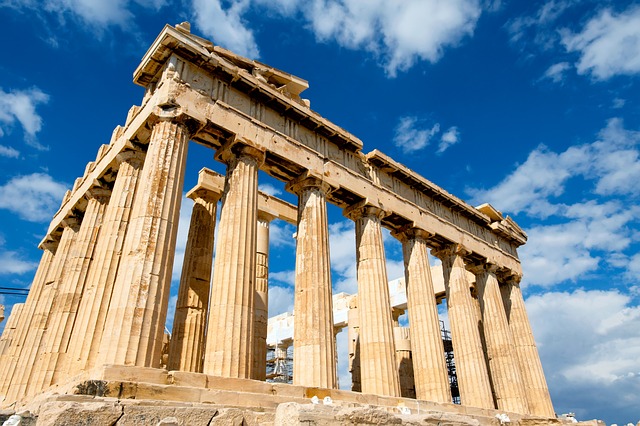Nomadic peoples forced Greece into a decline that lasted more than 300 years after the Dorians defeated the Mycenaeans in 1100 B.C. The huge Mycenaean towns were not appealing to the Dorians, who preferred their nomadic lifestyle of shepherding and hunting. They were a tribal people with a strict sense of justice, and the time was characterized by clan wars. Men tended to carry iron weapons now that the Bronze Age in Greece had come to an end thanks to the Dorians, who introduced the new, more resilient metal from the north.
The Mycenaean writing vanished, and the art that had flourished throughout the Mycenaean Age deteriorated, leaving little trace of Greek civilisation during this Dark Age. Numerous Mycenaean cities were abandoned during the Dorian era, and it appears that several regions and islands were depopulated. There is no proof of international trade. The Greeks had fallen into poverty.
A few Mycenaean villages managed to survive in isolated regions while the Dorians seized control of the Greek mainland. Many Mycenaeans migrated to Athens in the east, where they found refuge for those who desired a revival of the former culture. Other Mycenaeans migrated across the Aegean Sea and settled in Asia Minor. These refugees were mostly Ionian Greek speakers.
Greece's mythology is one of the country's most enduring cultural legacies. Ionian Greeks celebrated the glory of the past in song and verse, notably the Greek poet Homer's (c. 850 B.C.) Iliad and Odyssey, as they tried to preserve the sophisticated culture of the Bronze Age. A new Greek religion centred on Zeus and 11 other gods who were thought to reside on Mount Olympus in northeastern Greece was born when these epics were joined with eighth-century poet Hesiod's Theogony, a narrative of the creation of the universe and the generations of the gods. Later, the Romans embraced the Greek gods and gave them new names.
Thank you for reading my post...
